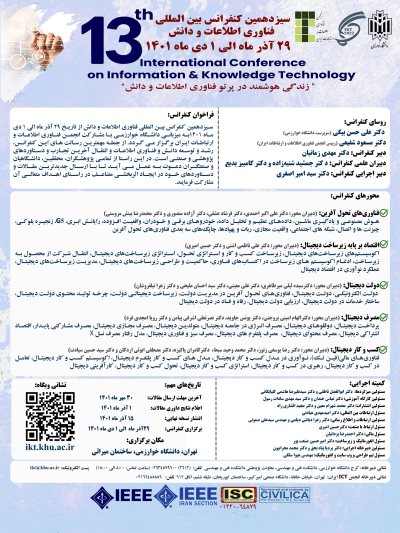0% Complete

نویسندگان :
کلمات کلیدی :
چکیده :
لیست مقالات بایگانی شده
Mohammad Ali Poorafsahi - Hamid Mala
Dr Hamid Jazayeriy - Mohammad Daryani
Maral Mirza mohammadi - Mahdi Tarom
Mohammadmohsen Jadidi - Pegah Moslemi - Saeed Jamshidiha - Iman Masroori - Abbas Mohammadi - Vahid Pourahmadi
َAmir Reza Ziaee - Masomeh Azimzadeh - Parvin Ahmadi
Mohammad Bahrami - Seyyed Amir Asghari - Mohammadreza Binesh Marvasti - Sajjad Ansaria
فاطمه صبائی - دکتر احمد عبداله زاده بارفروش
الهام معین الدینی - دکتر منیره عبدوس - دکتر اسلام ناظمی
Mahsa Alikhani - Marzieh Sheikhi - Dr Vesal Hakami





